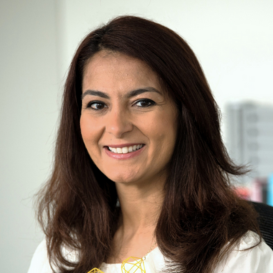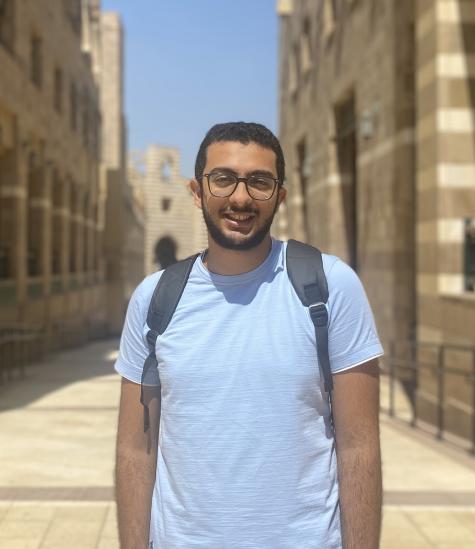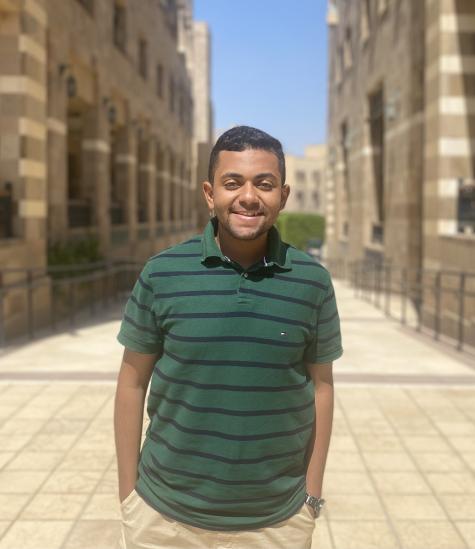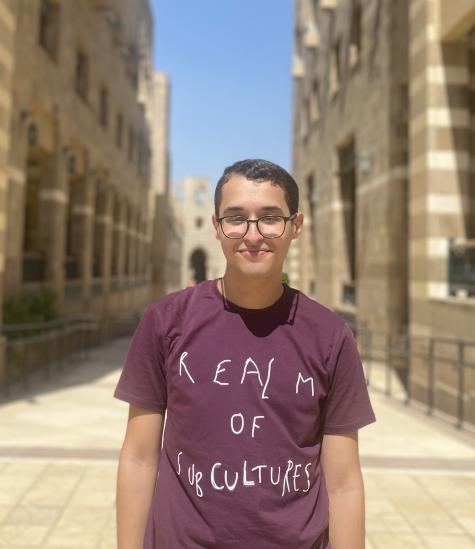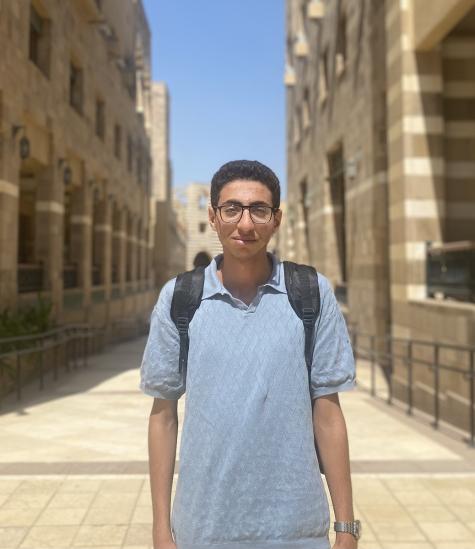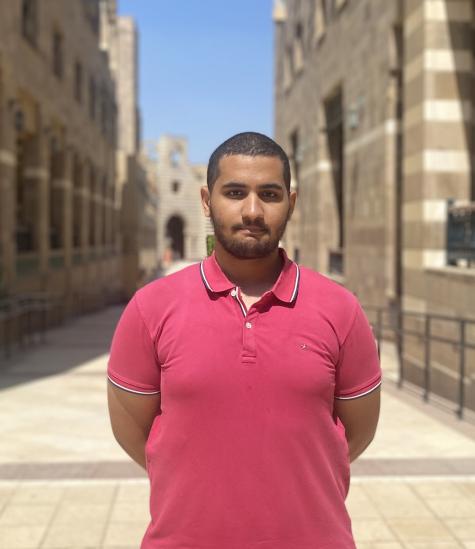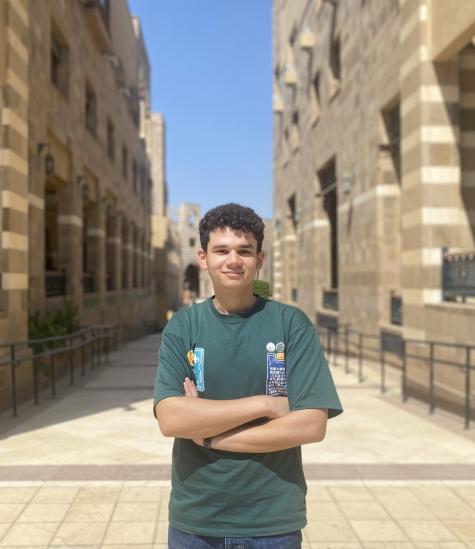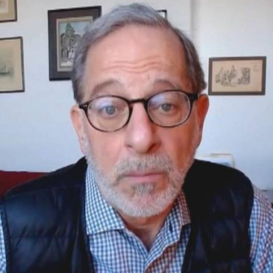Where are you from?
I live a simple, quiet life in Obour City within Cairo.
What is your major and why did you choose it?
I am a declared electronics and communications engineering major. Studying electronics felt like a smart decision given the surge of AI technology, and electronics could be used to develop those tools. I also like to study modern topics, and electronics is relatively modern, to say the least.
Why AUC?
"I chose AUC because it felt like a place where I’d have to work to prove myself among a big group of outstanding people with great achievements. Its style and vision are also very attractive to me given the whole ‘liberal arts’ system of education and how it works on improving us as people as well as whatever we are specialized in.
What are your short-term goals?
I hope to adapt to the changes I’m currently experiencing, and to find stability and comfort in being a student. Then I could go on to participate in extracurricular activities to find community and improve myself.
What is your dream in life?
I hope to make a change and leave a print in this world, and continue to work on myself and develop as best as I can. I also hope to gain public attention by using my voice to talk about important topics and raise awareness of many issues, including the importance of mental health.
Mohamed Hany Said Mohamed, Math Section - Second Place

